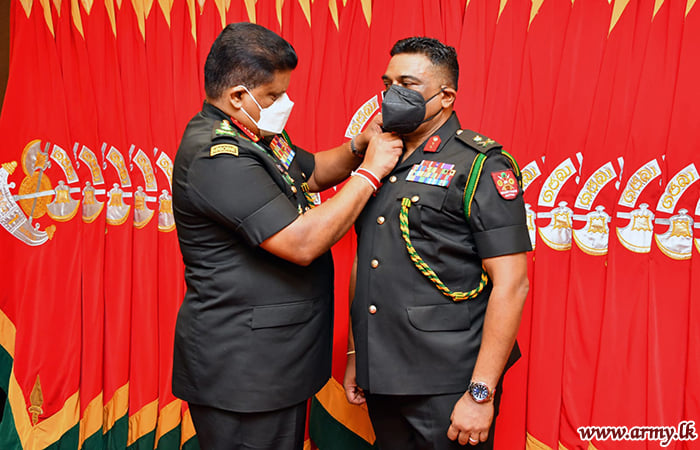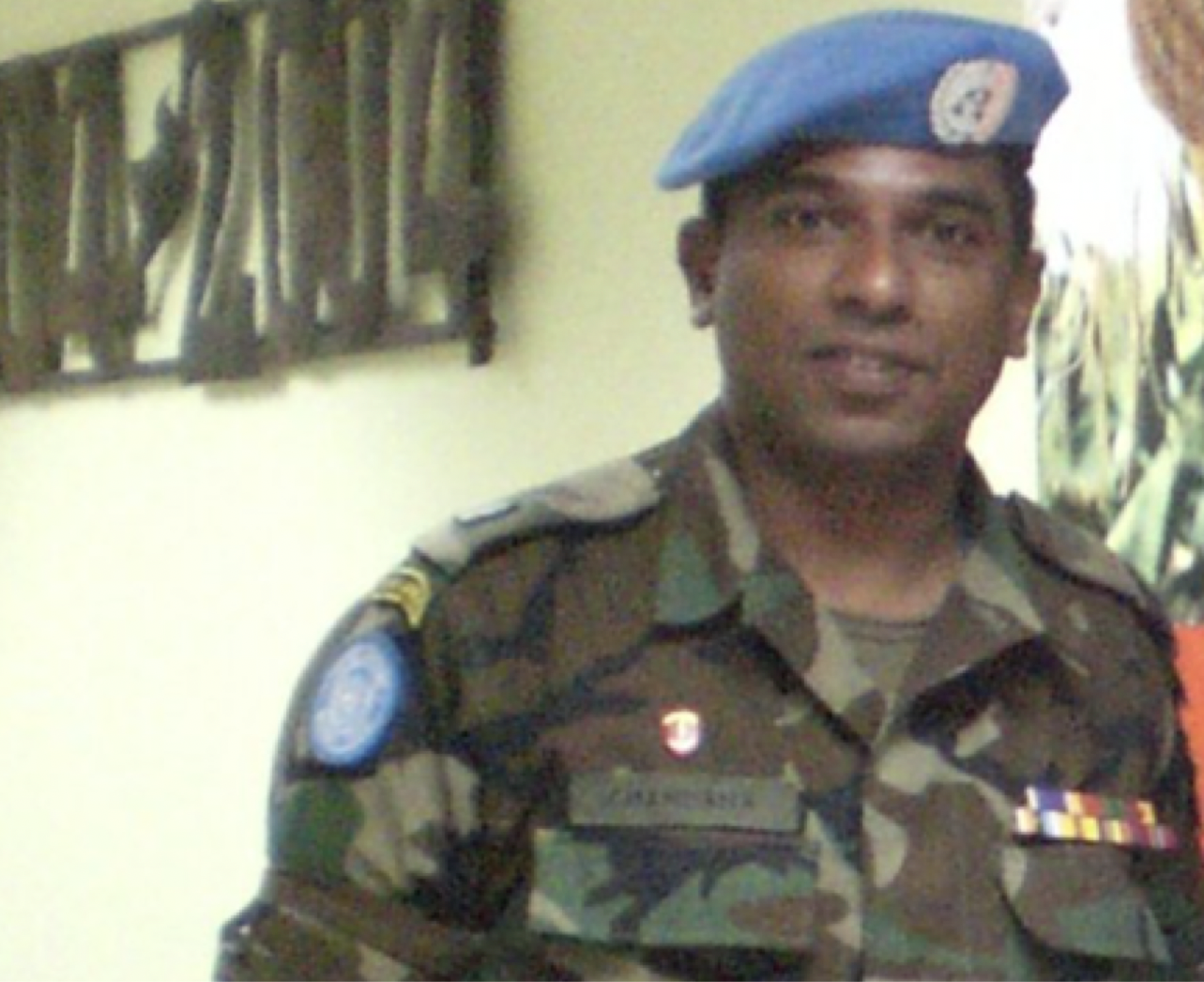
Wickramasinghe receiving his new rank insignia from Army Commander Shavendra Silva
Major Chandana Wickramasinghe, an accused war criminal, was amongst the 567 officers and 10,386 other ranks promoted on Sri Lanka’s ‘Army Day’ last week.
According to a dossier released by the International Truth and Justice Project (ITJP) last year, Wickramasinghe was involved in frontline combat at the height of the armed conflict in 2008-9, where he commanded the 8th battalion Gajaba Regiment.
During 2009, the Gajaba Regiment was involved in attacks in Vishwamadu, Puthukkudiyiruppu and in Puttumattalan. These attacks were referenced in the United Nations Report of the OHCHR Investigation on Sri Lanka (OISL) as locations where human rights abuses occurred.
In these attacks, civilians and civilian objects were attacked, “in violation of international humanitarian law and the principles of distinction and proportionality for which he bears criminal responsibility.”
Wickramasinghe was reportedly promoted to Major General with the approval of President, Gotabaya Rajapaksa, Commander-in-Chief of the Armed Forces on the recommendation of the Chief of Defence Staff and Commander of the Army, General Shavendra Silva. Both Rajapaksa and Silva also stand accused of human rights violations.
Human rights violations abroad
The Sri Lankan army has not only been accused of human rights violations at home but also abroad. In 2007 during a peacekeeping mission, over a 100 Sri Lankan peacekeepers were identified as being a part of a child sex ring. Sri Lankan troops were accused of exchanging food and money for sex with girls and boys as young as 12. While most of the accused were repatriated, none have been criminally prosecuted.

Wickramasinghe was posted as a Staff Officer during the mission in 2007. In their dossier, the ITJP noted that “it is probable that Wickramasinghe would not only have had knowledge of the allegations, but would also have known the identities of those implicated in the abuse.”
“His inaction and failure to address these crimes raises his own complicity in the cover up of these crimes for which he should have been subject to military disciplinary procedures as well as criminal responsibility including under Sri Lankan law given the crime and age of the children involved,” the ITJP added.
Although most of the troops were repatriated, none of them have been held criminally responsible.
